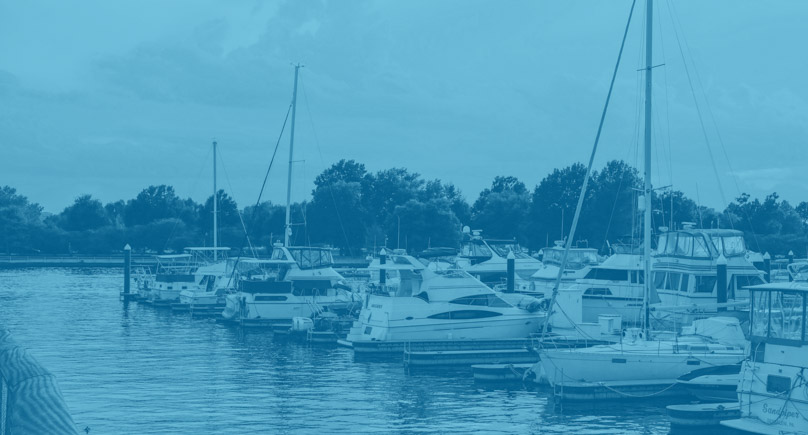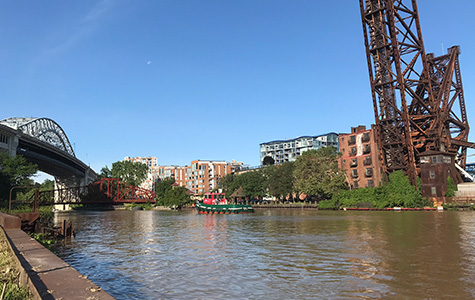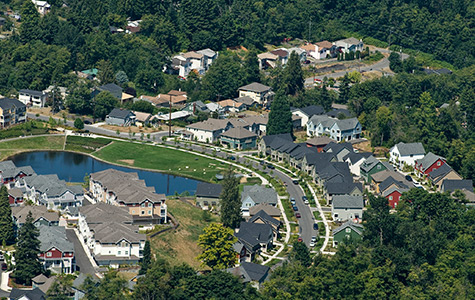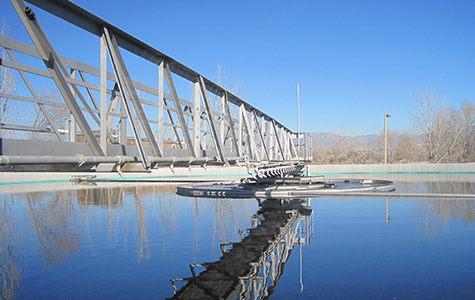Impacts
Clean water utilities don’t just treat wastewater, they improve our lives and transform communities by improving their social, economic, and environmental health.
Overview
Clean Water's Triple-Bottom-Line Benefit
When people outside the public wastewater—what we will from this point on refer to as clean water—sector think about wastewater treatment, if they do at all, they likely understand, at least in a general way, that the used water taken from their house or business, coming from toilets and drains, is transported by underground pipes to a treatment plant that cleans it before returning it to a local waterway. Every flush of every toilet every day. Every shower. Every load of dishes and every load of laundry all generate a giant river of wastewater flowing under our feet, our bikes, and our cars and into our wastewater plants. Most people don’t give it much thought. And because this happens every day, all day, without interruption, for people’s entire lives, they don’t often consider how things could be without it or how things were before treatment systems were built.
Every load of dishes and every load of laundry all generate a giant river of wastewater flowing under our feet, our bikes, and our cars and into our wastewater plants.


For most of these last 50 years, people within the clean water sector were pretty silent about their work, content to remain under the radar. They didn’t often communicate to customers about the important work they were doing, and, when they did communicate, they often limited their focus to the engineering and science behind wastewater treatment and the management of stormwater. They talked about state-of-the-art technology that can treat the water. They talked about raising rates to enable continual investment in the infrastructure to meet tighter regulations. And they talked about what customers could do to help keep the system working well, such as disposing of fats, oils, and grease properly and not flushing so-called “flushable” wipes down the toilet.
Wastewater plants don’t simply treat your dirty water. Wastewater plants enable communities to thrive from social, economic, and environmental aspects.
What was often missed in these messages was the bigger picture—the more holistic, triple-bottom-line impact that clean water creation has in communities. Think about it. Most anything you do throughout your day, whether it’s going to work, riding a bike, eating a meal, shopping, or even just being at home, at least some part of it was made possible by the clean water sector. Wastewater plants don’t simply treat your dirty water. Wastewater plants enable communities to thrive from social, economic, and environmental aspects. It is clear that creating clean water from our wastewater is more than just a series of engineering activities that rid our homes and businesses of waste. The work clean water agencies do every minute of every day without interruption contributes to the overall health of a community’s people, its economy, and its environment. NACWA’s role over the past 50 years has been to shape the regulatory and policy landscape broadly, leading to a consistent application of strict yet rational regulatory requirements to protect public health and the environment. In short, our members and their dedicated employees are America’s most important frontline environmentalists. This has been true since even before the Clean Water Act came into existence, and it is even more true today. As these utilities have grown in national importance, NACWA has grown right alongside them to serve and protect their interests.
Tell Your Story
The success of clean water agencies depends on everyone sharing their own stories of success. We'd love to help you tell your story!
Find Out More

